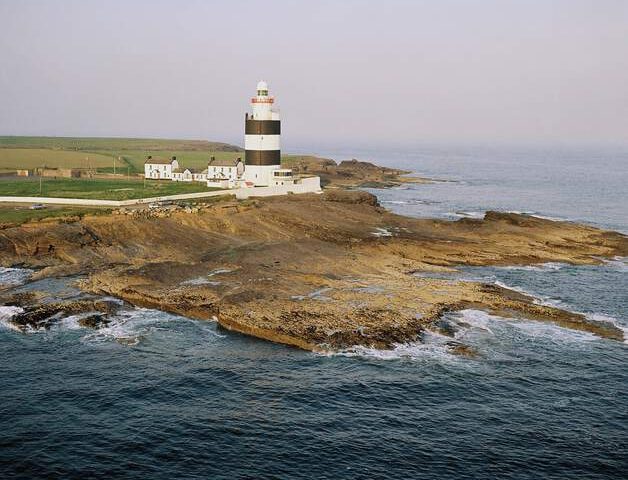When we think of winemaking regions, places such as France, Italy, and Spain are most likely to spring to mind, but England actually has a rich history in winemaking. Many are surprised to find that England’s cool, wet climate makes it the perfect location for growing grapes and creating wines with a very delicate, distinctive flavour. While English wine production is often overlooked, it has an interesting yet challenging past including humble beginnings, a dramatic decline, and a recent revival that has put English winemaking back on the map. In this blog, we will explore that history and look at some of England’s top vineyards and wineries, offering tours and tastings that will further help you quench your thirst for winemaking knowledge.

Ancient Beginnings
We have evidence of English winemaking dating back to the Roman times. The Romans occupied Britain from AD 43 to around AD 410 and were the first to introduce vineyards to the English landscape. They planted grapevines and began to produce wine to distribute to the Roman settlements. At this time, the climate was not ideal as the Romans were used to much warmer conditions in the countryside of Italy, but these early winemakers persisted, particularly in the milder climates of southern England. After the fall of the Roman Empire, winemaking continued in England throughout the Middle Ages, largely by the church who produced wine for religious ceremonies. However, the English climate drastically changed during the “Little Ice Age” (circa 1300 – 1850) and became much cooler. This, coupled with the rise in popularity of beer and ale, resulted in a decline in wine production.
The Decline of English Wine
By the 16th century, the production of English wine had all but disappeared. It was believed that the cooler climate made growing grapes more difficult, and England began to import wine from other wine-producing regions such as France and Portugal. The tastes of the English public began to shift towards these imported wines, specifically fortified wines such as sherry and port, which added to a further decline in local production. Sparkling wines also became increasingly popular, especially Champagne from France, which dealt another blow to winemaking in England. While English scientise Sir Christopher Merrett made an important contribution to the development of sparkling wines, documenting that adding sugar will create bubbles in the wine in 1662, English vineyards did not have the facilities to create large quantities of this new, sought-after wine.
The Revival
In the mid-20th century, a small number of people decided to replant vineyards across England in a bid to revive the English winemaking trade. In the 1950s and 60s, English winemakers started experimenting with different grape varieties to see which ones grew best in the cooler climate of England, something that previous winemakers did not have the knowledge or facilities to do. This was the beginning of a new era of English wine production. One such early success was Hambleton Vineyard in Hampshire, established in 1952. This was the first commercial vineyard in England since the Middle Ages and became a pioneer of renewed interest in English winemaking. Over the following years, other vineyards appeared, particularly in southern England in counties such as Kent, Sussex, and Surrey where the climates are deemed more favourable for grape growing.
The Future
English winemaking is now a thriving industry with over 1000 vineyards registered to be operating across the English countryside in 2023, and 221 wineries. The future is English wine looks to be a bright one, with wine tourism booming, production growing, and international demand increasing. The climate in England is constantly changing, but vineyards and wineries are expertly staying on top of this by coming up with more innovative winemaking techniques, allowing England to continue to expand its influence globally in the wine market.
Exploring England’s Vineyards and Wineries
Hambledon Vineyard, Hampshire
As discussed before, Hambledon is the oldest commercial vineyard currently operating in England and played a major role in the revival of English wine production. It is located in South Downs in Hampshire, where the climate provides ideal soil conditions for producing premium sparkling wines. Visitors can enjoy guided tours of the vineyard and winery, learn about the estate’s rich history and winemaking techniques, indulge in their intimate ‘Cellar Door Dining’ experience, and of course try some of their specialty Chardonnay, Pinor Noir, and Pinot Meunier wines.
Gusbourne Estate, Kent
Established in 2004, Gusbourne is based in Appledore, Kent and is renowned for its dedication to the craftsmanship and quality of the wine produced there. They offer private and group tours where visitors can explore their vineyards and enjoy tastings of their award-winning wines. Their tasting room, “The Nest”, provides a relaxing atmosphere for wine lovers to linger at their own pace, sipping a glass of wine or enjoying the panoramic views across the vineyards.
Amber Valley Vineyards, Derbyshire
Amber Valley is a boutique vineyard located in the heart of the Peak District, in Derbyshire and is known for producing handcrafted, award-winning English wines. It is nestled in the picturesque Amber Valley which benefits from a unique climate of well-drained soils that make it ideal for growing grapes for Pinot Noir, Solaris, and Seyval Blanc wines. Amber Valley offers visitors private and group tours, including bespoke packages for stag and hen dos to enjoy.
Ryedale Vineyards, North Yorkshire
One of the northernmost commercial vineyards in the UK, Ryedale Vineyards produces a range of high-quality still and sparkling wines using Ortega, Rondo, and Solaris grape varieties which flourish in the cool soils of the region. Being a family-run vineyard, Ryedale’s focus is firmly on sustainability from their farming practices to winemaking processes. Visitors to Ryedale can enjoy tours of the vineyards, tastings of their famously fresh and crisp wines, and learn more about winemaking in the Yorkshire countryside.
The story of English wine is undoubtedly an interesting one, and today, the England is home to some world-class vineyards and wineries, producing wine for every taste. Exploring England’s vineyards is a journey through not only beautiful countryside, but also the rich and dramatic history that led to English winemaking becoming the success it is today. Here at Best of Scotland Holidays, we have over 40 years of experience crafting itineraries for your visit to the United Kingdom and Ireland. Contact us today if fitting in a tour of some of England’s finest vineyards sounds like the perfect day out, and one of our friendly team will be happy to help you







